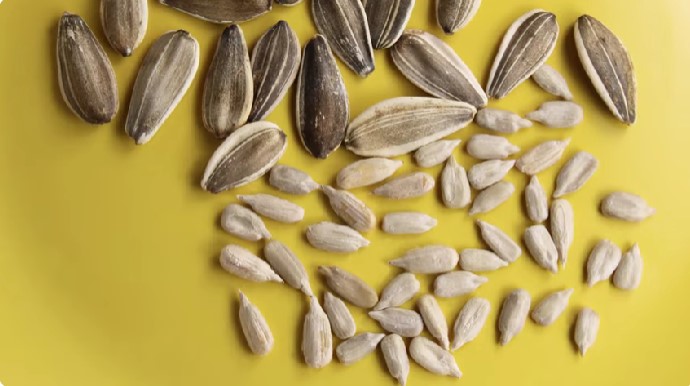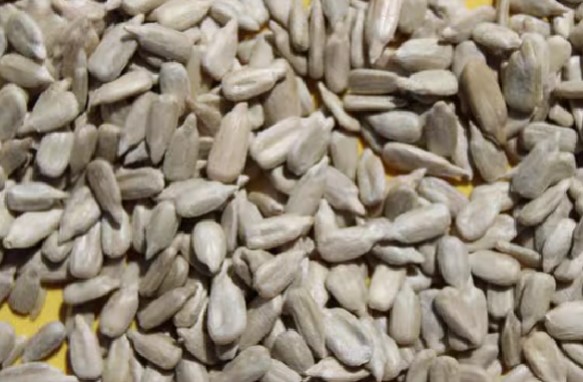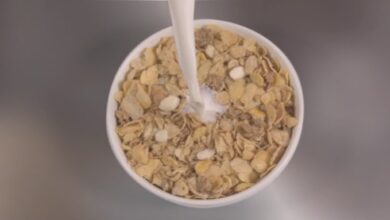Sunflower Seeds Nutrition Facts
Sunflower seeds are more than just a tasty snack; they are nutritional powerhouses packed with a wide range of essential nutrients. This article will delve into the detailed nutritional profile of sunflower seeds, exploring their health benefits, potential downsides, and frequently asked questions.

Introduction
Sunflower seeds are often overlooked as a mere snack, but they are loaded with impressive nutrients that can provide numerous health benefits. From heart health to diabetes management, these tiny seeds pack a powerful punch. Whether you enjoy them raw, roasted, or as part of a dish, understanding their nutritional value can help you make informed choices about including them in your diet.
Nutritional Profile of Sunflower Seeds
Macronutrients
- Calories: 165 per ounce (28 grams)
- Protein: 5.5 grams
- Total Carbohydrates: 7 grams
- Fiber: 3 grams
- Total Fat: 14 grams
- Saturated Fat: 1.5 grams
- Monounsaturated Fat: 3 grams
- Polyunsaturated Fat: 9 grams
- Cholesterol: 0 milligrams
Micronutrients
- Vitamin E: 7.4 mg (49% DV)
- Niacin (Vitamin B3): 2 mg (13% DV)
- Pantothenic Acid (Vitamin B5): 2 mg (40% DV)
- Vitamin B6: 0.2 mg (15% DV)
- Folate (Vitamin B9): 67 mcg (17% DV)
- Iron: 1 mg (6% DV)
- Zinc: 1.5 mg (14% DV)
- Magnesium: 37 mg (10% DV)
- Copper: 0.5 mg (56% DV)
- Selenium: 22.5 mcg (41% DV)
- Manganese: 0.6 mg (30% DV)
- Sodium: 1 mg (0% DV)
Health Benefits of Sunflower Seeds
Heart Health
Sunflower seeds can significantly benefit heart health. They contain high levels of unsaturated fats, particularly linoleic acid, which helps reduce cholesterol levels. The seeds also offer a good amount of soluble fiber, which can help lower LDL cholesterol, reducing the risk of heart disease.
Diabetes Management
Sunflower seeds have shown promise in managing blood sugar levels. Consuming about an ounce of sunflower seeds daily can help reduce fasting blood sugar by approximately 10% within six months. This effect is partly due to chlorogenic acid, a plant compound found in sunflower seeds.
Thyroid Health
Selenium, found abundantly in sunflower seeds, is crucial for thyroid health. Adequate selenium intake supports the thyroid gland’s function and may reduce the risk of thyroid disorders.
Immune Support
Sunflower seeds are rich in vitamin E, zinc, and selenium, all of which are vital for a robust immune system. These nutrients help protect cells from damage and support the body’s immune response.
Metabolic Health
The combination of protein, fiber, and healthy fats in sunflower seeds supports metabolic health by slowing digestion and providing a sustained release of energy. This is particularly beneficial for managing blood sugar levels and promoting satiety, making sunflower seeds an excellent snack for those with type 2 diabetes or those looking to manage their weight.
Potential Downsides
High Caloric Content
While nutritious, sunflower seeds are calorie-dense. Moderation is key to avoiding excessive calorie intake.
Sodium Content
Sunflower seeds, especially those sold in the shell, can be high in sodium. Choosing unsalted varieties or those with reduced sodium is recommended to avoid excess salt intake, which can lead to elevated blood pressure.
Cadmium Exposure
Sunflower seeds can accumulate cadmium, a heavy metal, from the soil. High cadmium intake over time can harm kidneys. It’s best to consume sunflower seeds in moderation.
Allergies
Though rare, sunflower seed allergies can occur. Symptoms may include asthma, mouth swelling, itching, hay fever, skin rashes, vomiting, and anaphylaxis.
Stool Blockages
Consuming large amounts of sunflower seeds, particularly those with shells, can lead to stool blockages. Eating seeds in moderation and avoiding shell fragments can prevent this issue.

Frequently Asked Questions
How many sunflower seeds should I eat daily?
It’s generally recommended to consume about 1 ounce (28 grams) of sunflower seeds daily to reap their health benefits without overconsuming calories or cadmium.
Can sunflower seeds help with weight loss?
Yes, due to their high protein and fiber content, sunflower seeds can promote feelings of fullness and help control appetite, making them a good addition to a weight loss diet.
Are there any side effects of eating sunflower seeds?
Potential side effects include high caloric intake, sodium overload, and cadmium exposure. Allergic reactions and stool blockages are also possible but less common.
Can sunflower seeds improve skin health?
Yes, the vitamin E in sunflower seeds acts as an antioxidant, protecting skin cells from damage and promoting healthy skin.
Sunflower seeds are indeed nutritional gems that can offer numerous health benefits when consumed in moderation. Incorporating them into your diet can support heart, thyroid, immune, and metabolic health, among other benefits. However, it’s important to be mindful of their potential downsides to make the most of their healthful properties.





